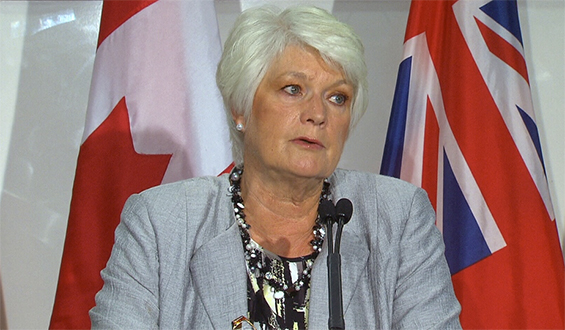
High school teachers from Ontario, Canada who participated in illegal strikes last spring will still receive full pension credits for the time that they spent away from their jobs, although the same agreement will not be made in future illegal job actions, according to the education minister.
Ontario Education Minister Liz Sandals made the decision to allow those teachers who had illegally gone on strike to still collect pension credits because the teachers “did not understand” that they were doing anything illegal. However, she added that the teachers’ union leaders should have known better and should not have allowed the illegal activity to commence.
The Liberal government changed the rules for the Ontario Teachers’ Pension Plan and allowed teachers at three school boards to receive pension credits for the time they were away from their jobs last spring during an illegal strike. The Ontario Secondary School Teachers’ Federation will pay the cost of making up the pension credits, writes Adrian Morrow for The Globe and Mail.
Last spring, teachers in Peel, Durham, and Sudbury walked out of their classes and did not return for three to six weeks, which left 74,000 students without classes. Under normal circumstances, teachers would not be able to receive pension credits for this time. However, Sandals maintains that the teachers did not know what they were doing.
The strike was labeled “unlawful” by the Ontario Labour Relations Board on May 26, with back-to-work legislation being passed by the government only two days later. According to board members, the strike was considered to be illegal because only a small selection of local unions participated despite being motivated by bargaining issues that affected the entire province.
Sandals said the teachers were unaware that the strike was illegal, as many of them thought the strikes to be above the board, as the OSSTF told them their actions were within the realm of the law.
“It was quite clear that the teachers were not aware that they were participating in an illegal strike until the labour relations board ruled,” she said. “The issue here was: Why would we penalize people who had not willfully participated in an illegal strike?”
She went on to blame the OSSTF, saying she did not understand why they had gone ahead with the local strikes due to the fact that the School Boards Collective Bargaining Act had split negotiations into province-wide and local issues.
OSSTF president Paul Elliott has yet to respond to an e-mail containing Sandal’s critiques of the union.
According to Sandals, there should be no cause for concern that a rule change for these teachers would lead to similar issues in the future. She said the rule change will only apply to the teachers who had participated in the strikes last spring, and if it is used by other unions in the future, the government will deny their request, adding that the labor board’s ruling should have made it perfectly clear to all teachers what counted as an illegal strike.




